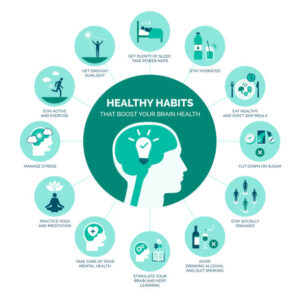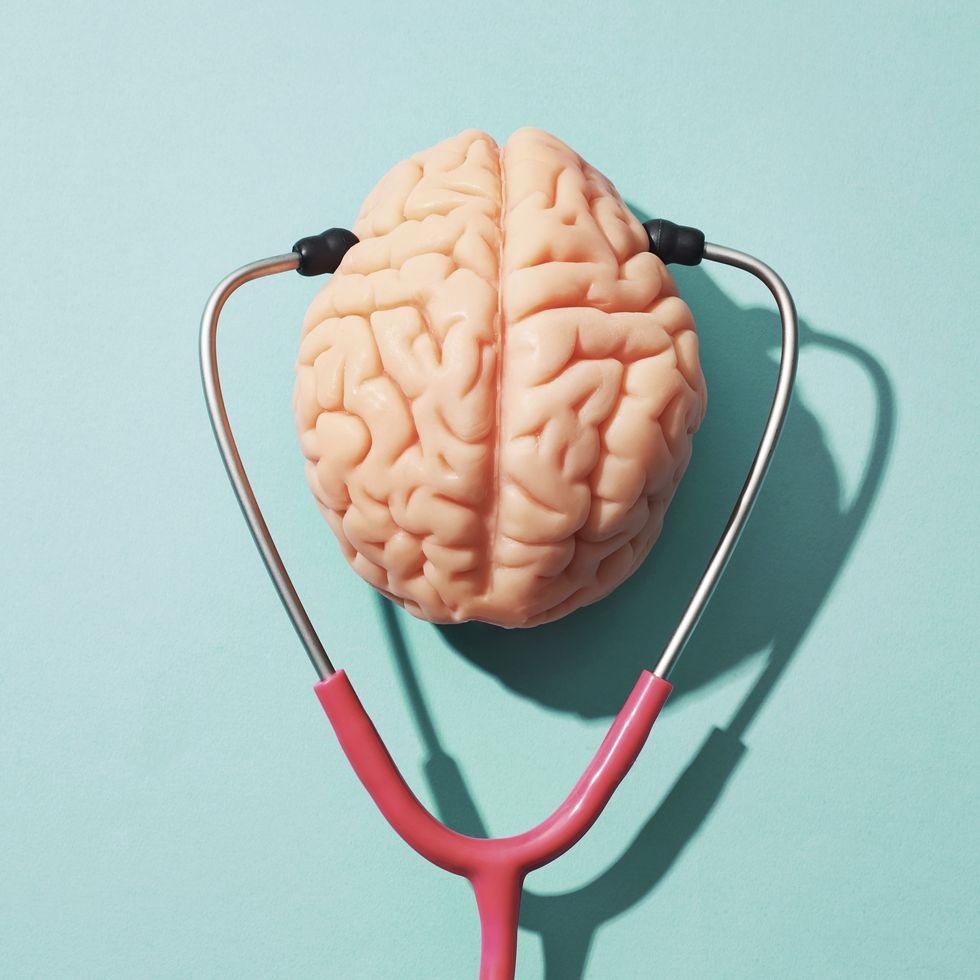Routine habits have a significant impact on our brain, in the short and long term. When we engage in a habit repeatedly, we create neural pathways in our brain that make the behaviour more automatic and easier to perform. This is called neuroplasticity, which refers to the brain’s ability to change and adapt in response to experience.

In the long run, routine habits can shape the structure of our brains. Studies have shown that certain habits, can increase grey matter volume in areas of the brain associated with memory, emotion regulation, and attention. On the other hand, some habits can have a negative impact on brain structure and function, leading to cognitive impairment and even permanent brain damage. Additionally, habits can also affect the level of certain neurotransmitters in our brains, such as dopamine and serotonin, which influence our mood and behaviour.
Here are some Top Daily Habits that hurt your cognition and memory:
A LONG WORKDAY: Today, an eight-hour workday is the norm – there’s much pressure and workload in most jobs calling for extra time. But studies show that extensively long working hours are harmful for the brain cells and an individual’s productivity. Research proves that overworking and a sedentary life gradually poison your cognitive health. Late-night calls, long repetitive meetings, and busy weekends can cause huge burnouts. Here’s what you can do to lighten your everyday workload to improve your cognitive health:
- Batch similar tasks together and complete these in one work session.
- Take a 5-minute walking break for every hour of sitting.
- Spend more time in nature to get adequate sunlight.
ISOLATION: The inability to make time for others leads to isolation which increases psychosocial stress, associated with a higher risk of heart and neurological diseases. Loneliness is a fertilizer for other diseases – it increases your risk of anxiety and depression, which shrinks the brain. So, protect your cognition by connecting with people regularly. It is very important to have meaningful interactions with people so choose someone whom you care about and who cares about you too.
Here’s what you can do:
- Plan regular phone calls or meet ups with friends and family.
- Make plans to do something fun and active with peers on weekends.
- Try out a group class to find people with similar hobbies.
EXCESSIVE SCREEN TIME AND MEDIA: Your hectic workday can lead to poor cognition. Additionally, you sit and work in front of the screen for a third of the day, which is followed by more sitting as you relax by watching television or playing video games. Both, work and relaxation, are hacked by screens. This mindless exposure to screens can cause harmful effects on your sleep schedules, disallowing the brain to rest. Sleep is a major component of good mental and brain health. Even minor sleep deprivation can cause major problems – it can wreck your focus, alertness and concentration.
Here’s what you can do:
- Rest your eyes by closing them for just two minutes, at frequent 1 to 2-hourly intervals.
- Try focusing away from the screen from time to time to relax your eyes.
- Find new hobbies that don’t require staring at a screen.
- Reduce blue light exposure one hour before sleep.
- Make sure you get at least 6 – 9 hours of continuous, uninterrupted sleep daily.
NOT BEING MINDFUL OF YOUR CONSUMPTIONS: Poor nutrition, excessive alcohol consumption and smoking are strongly related to poor brain health.
Here’s what you can do:
- Enriched Nutrition: Eating a diet high in processed foods and sugar leads to inflammation in the brain, which has been linked to depression, anxiety, and cognitive decline. Switch to a nutrition-rich diet.
- Avoid Excessive Alcohol Consumption: Alcohol is a neurotoxin that damages brain cells and leads to cognitive impairment, memory loss, and even permanent brain damage.
- Quit Smoking: Smoking decreases blood flow to the brain, leading to cognitive decline and an increased risk of dementia.
POOR PHYSICAL ACTIVITY LEVELS: We know regular physical activity is good for your heart, muscles, and bones, but did you know it’s good for your brain too? Whether the physical activities are structured (going to the gym, having a workout routine) or unstructured (taking the stairs, parking a little further away and walking, going to the market instead of online shopping) – these greatly benefit the mind.
Exercise helps memory and thinking, both directly and indirectly. Its direct benefits include reducing insulin resistance, reducing inflammation, and stimulating the release of growth factors – chemicals in the brain that affect the health of brain cells, growth of new blood vessels in the brain, and even the abundance and survival of new brain cells.
Indirectly, exercise improves mood and sleep, and reduces stress and anxiety. Problems in these areas frequently cause or contribute to cognitive impairment. Regular physical activity also reduces your risk of cognitive decline, including dementia. According to studies, cognitive decline is twice as common in adults who are inactive, compared to those who are active.
conclusively, routine habits have both positive and negative effects on our brain, depending on the specific habit and the context in which it is performed. It’s important to be mindful of our habits and their potential impact on our brain health, and to cultivate habits that promote positive mental and physical well-being. It’s high time we change the norm towards live a life that enriches our brain health.
- The Food And Mood Connect: Eating Your Way To A Healthier Mind - 1 March2025
- Beating The ‘Cascade Effect’ In 2025 - 28 December2024
- How Body Posture Shapes Mental Health - 9 November2024
